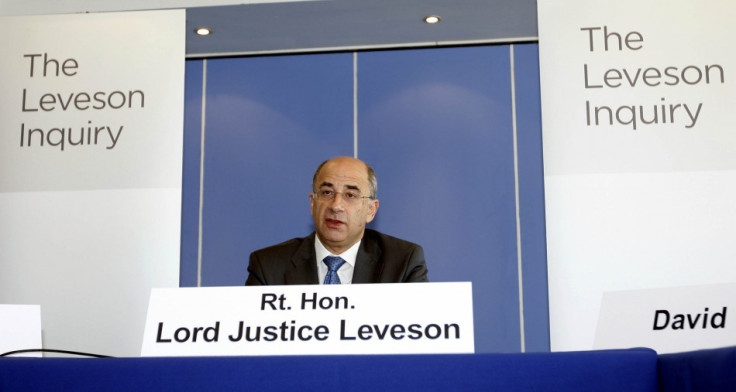Leveson Inquiry: News International and Phone Hacking Victims' Closing Statements
It's over: Marathon hearing into press ethics closes on day Andy Coulson and Rebekah Brooks charged over phone hacking.

The representative of the victims of phone hacking has called for a change to a "culture of cover-up" in the press as the Leveson Inquiry closed.
The 102-day-long inquiry into press ethics finished with closing statements from iNews International, the Guardian and some of the victims of phone hacking.
David Sherbourne, speaking on behalf of more hacking victims including Hugh Grant and the parents of Madeleine McCann, claimed that the heart of the problems uncovered by the inquiry, which has cost around £5.5m, was a failure of governance in the media.
"We are still looking at the tip of the iceberg," he said after criticising parts of the press for "dehumanising" the victims of phone hacking.
"Everybody knew was going on throughout the late 90s and 2000s and at best turned a blind eye to it," he said.
He warned Leveson, who will deliberate on his findings and make recommendations in the coming weeks, that he needed to take a firm grip of the tabloid press, warning that it might be "payback time" for those who spoke out against bad practices.
"The media has had one eye on what has gone on here and the fact that the spotlight is so intensely on them, but nothing has changed," he added.
The Leveson Inquiry heard from 470 witnesses who gave evidence under oath at London's Royal Courts of Justice. It gave the rare opportunity to see big political and media players put to the test by the inquiry counsel, led by Robert Jay QC.
Rupert and James Murdoch, Gordon Brown, Andy Coulson, George Osborne, Daily Mail editor Paul Dacre and prime minister David Cameron were some of the witnesses called. Lord Justice Leveson accrued more than 6,000 pages of evidence.
Sherbourne included the press, police and politicians in a pervading "culture of plausible deniability" rather than openness and candour.
He added: "Right at the heart of the problems is perhaps a failure of governance. It is not the journalists that are to blame, or even the editors, it starts right at the top."
News International closing statement
The pertinence of the inquiry could not be more starkly drawn than by the fact that its final day coincided with former News International chief executive Rebekah Brooks, former News of the World editor Andy Coulson and six other people being charged over the phone hacking conspiracy.
Rhodri Davies QC gave a closing statement on behalf of News International. He told the inquiry that only a fraction of the group's papers' actions had been looked into by the inquiry.
Leveson said that the last day of the inquiry meant his team's job had "only just started".
"I will produce a report as soon as I reasonably can," he told the inquiry.
"I recognise the urgency of the matter and the need to provide my views for the consideration of the government and all those interested parties speedily so that decisions can be made as to the way forward."
He added that he would not hesitate to include any incidents that occured later.
Chilling effect on press freedom
"If that means that we will end up back in this room, then so be it," he added.
Leveson will be concerned over the levels of cabinet backing he can expect for his recommendations despite claims by Cameron that the government will back them. Leveson complained to the cabinet secretary following comments made by education secretary Michael Gove that the inquiry had a "chilling effect" on press freedom.
He faces the difficult task of pleasing a public keen to see the tabloid press reined in, celebrities arguing in favour of increased privacy and a press adamant that its freedoms be maintained.
© Copyright IBTimes 2025. All rights reserved.





















